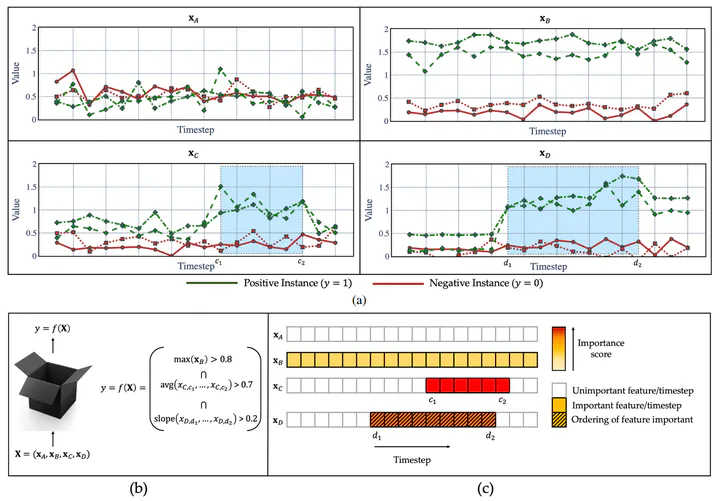Feature Importance Explanations for Temporal Black-Box Models

Abstract
Models in the supervised learning framework may capture rich and complex representations over the features that are hard for humans to interpret. Existing methods to explain such models are often specific to architectures and data where the features do not have a time-varying component. In this work, we propose TIME, a method to explain models that are inherently temporal in nature. Our approach (i) uses a model-agnostic permutationbased approach to analyze global feature importance, (ii) identifies the importance of salient features with respect to their temporal ordering as well as localized windows of influence, and (iii) uses hypothesis testing to provide statistical rigor.
Date
Jun 14, 2023 12:30 PM — 1:00 PM
Event
EMIL Summer'23 Seminars
Location
Online (Zoom)